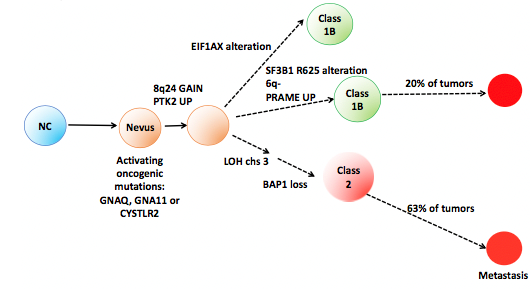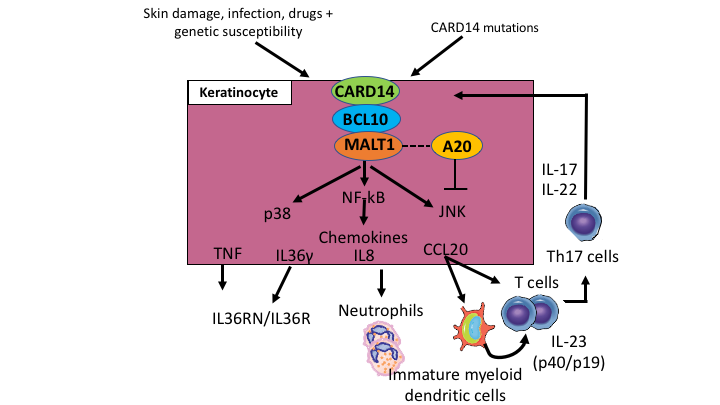CANCER GENETICS
Genetic differences or spontaneous changes in our genes lead to disease and we are interested in understanding the genetic basis disease and cancer. Uveal melanoma is a rare and devastating eye cancer of adults. We identified two genes which together are mutated in the majority of uveal melanomas (genes termed BAP1 and SF3B1). We are using a variety of model systems to examine the consequences of these mutations and to identify ways of combatting their effects. This includes modeling uveal melanoma causing mutations in the fly and in eye organotypic models. We are also interested the genetic basis of other forms of melanoma such as acral melanoma which predominantly affects individuals with skin of color.

Fig. 1. Progression to uveal melanoma showing the major genetic alterations in a neural crest cell of the eye that leads to tumors of different metastatic competency.
INFLAMMATORY SKIN DISEASE GENETICS
Psoriasis and psoriatic arthritis are chronic inflammatory diseases of the skin and joints. We identified a gene mutated in familial forms of psoriasis and psoriatic arthritis (CARD14) which is predominantly found in skin cells (keratinocytes) and endothelial cells. We showed that CARD14 mutations led to enhanced activation of NF-kB signaling in these cells. We continue to use genetic approaches to identify additional genes mutated in these diseases and use state of the art genetic and genomic approaches to try to understand more fully how psoriasis and psoriatic arthritis develop.

Fig2. Model of Ps and PsA pathogenesis induced by altered CARD14 signaling in the skin
Our laboratory is affiliated with the Department of Oncological Sciences, the Department of Dermatology and Genetics and Genome Sciences and the Tisch Cancer Institute at the Icahn School of Medicine at Mount Sinai, in New York City.
